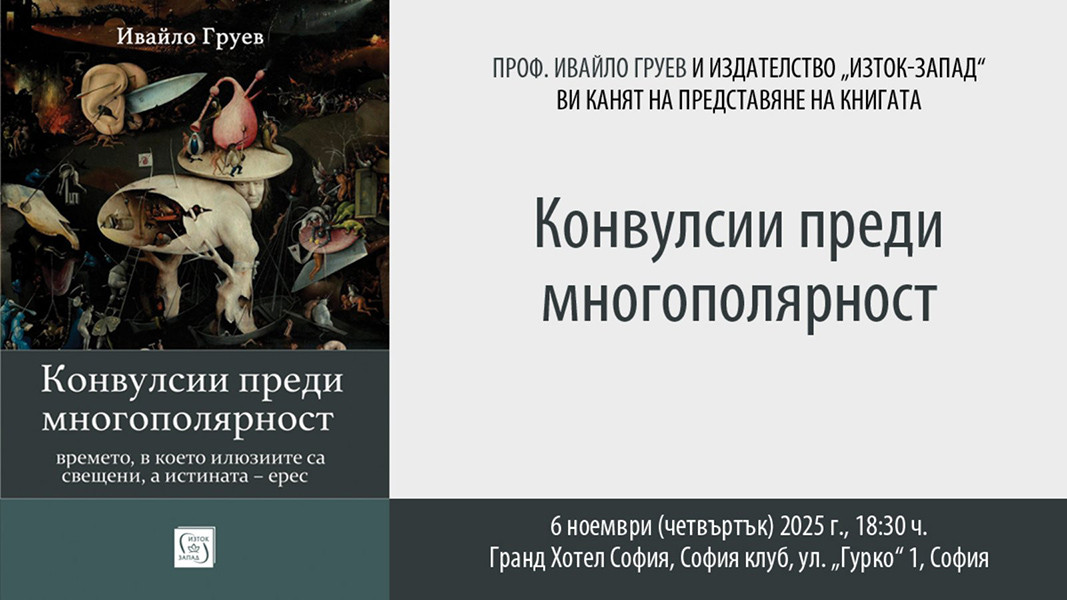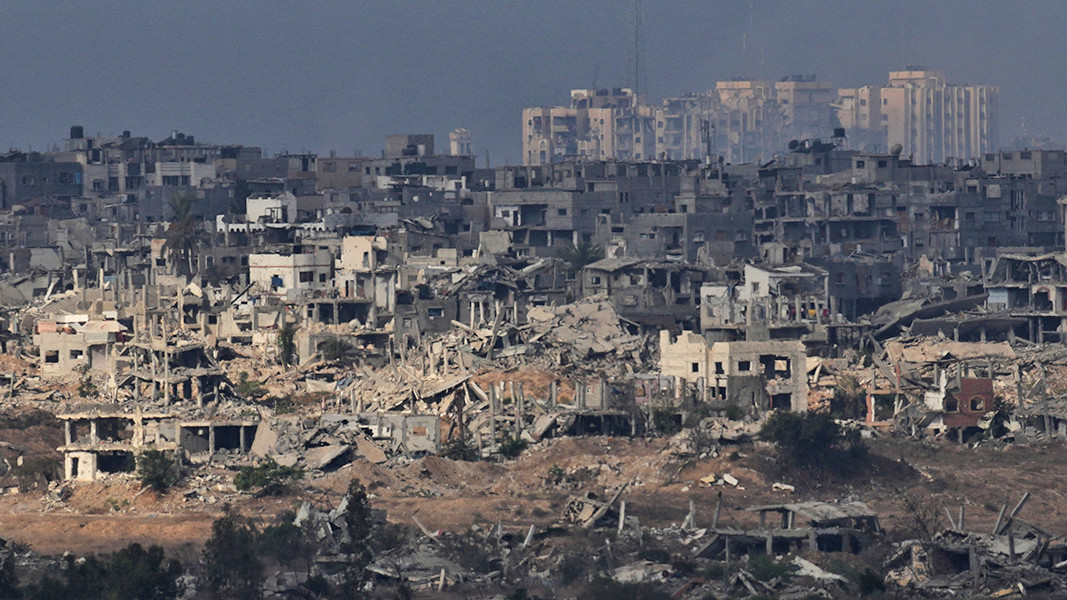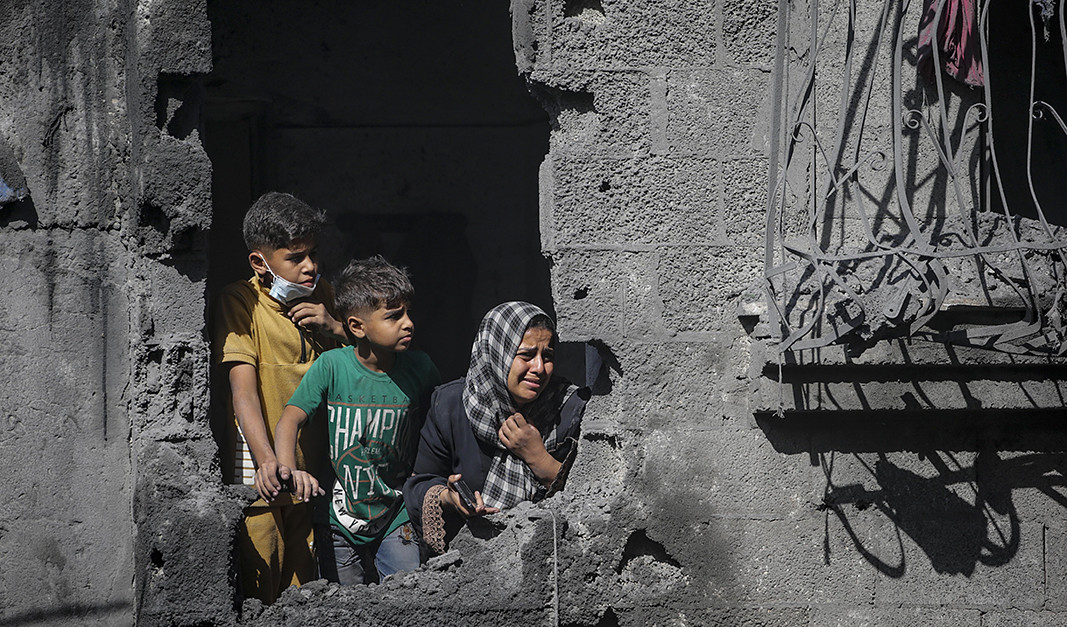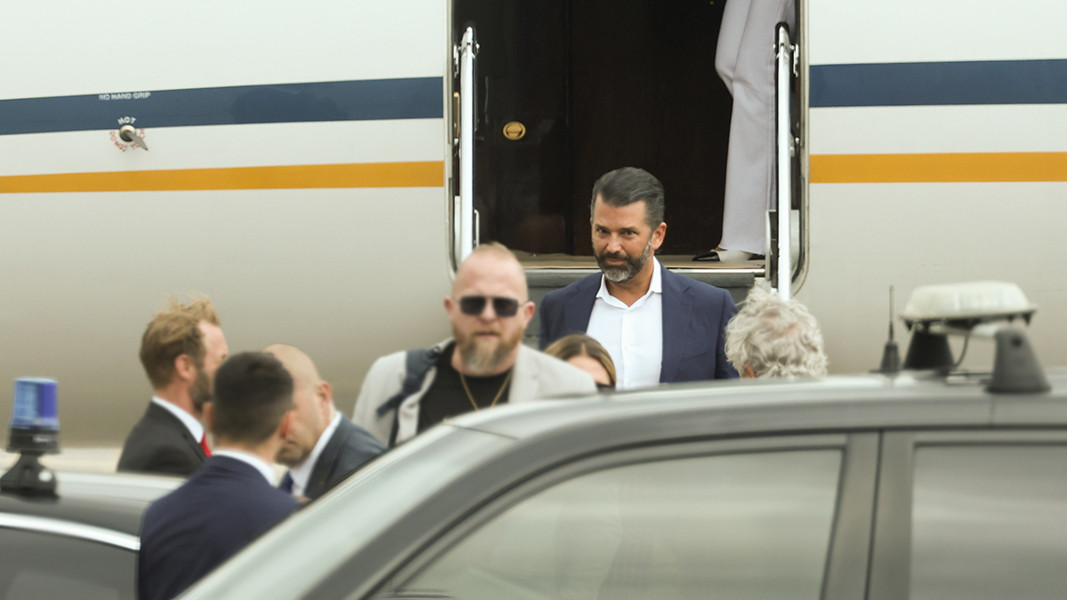Convulsions Before Multipolarity — a Time When Illusions Are Sacred and Truth Is Heresy is the title of a new book that will be officially presented in early November in Sofia. It explores the agony of a unipolar world, an era of geopolitical transformation, and the awakening of monstrous forces.
This political-philosophical analysis of the global order is written by Prof. Ivaylo Gruev, a political science lecturer at the University of Ottawa, whose scholarly publications have appeared in Canada, the United States, England, Germany, and Russia. The Bulgarian academic has authored numerous books and textbooks on political science; in 2012, he was nominated for Best Professor in Ottawa, and in 2017, he was awarded the Order of “150 Years of Canada.”

“The emergence of a new world, I’m afraid, will continue for some time,” said Prof. Ivaylo Gruev in the Radio Bulgaria studio, as he recalled the period when the unipolar model, now in its agony, was first established. “It began, strangely enough, in the Balkans, very close to Sofia — with Kosovo. The date was 23 March 1999, when NATO, the so-called ‘collective defense alliance,’ deployed a thousand combat aircraft, which bombed Kosovo for 78 days. The stated reason was genocide against the Albanian population in the remnants of Yugoslavia.
How did the unipolar world begin? It began with the sidelining of international law and its central institution, the United Nations. Kosovo was a so-called ‘pilot project,’ designed to see how the major powers — China and Russia at the time — and global public opinion, especially in the U.S., would react to this act of aggression. It turned out that this war could pass the threshold of tolerance of global public opinion and civil society. A few years later, in 2003, we already had a full-scale military operation in Iraq, where the stated reason was ‘weapons of mass destruction,’ which Iraq, as it turned out, did not possess. This was followed by Libya, Syria, and Ukraine…”
Prof. Gruev remains sceptical about the possibility of the conflict in another hotspot — the Gaza Strip — coming to an end.

“The discourse around this conflict in the mainstream media is seriously distorted. There is no frank and objective conversation about what is happening in Gaza. In early September, CBS published the number of children killed by the Israeli army in Gaza — a figure that exceeds 20,000. They calculated that, at the height of the fighting, 28 children were dying each day. Yet this issue has largely failed to attract the attention of objective journalists in Bulgaria, Europe, and, with a few exceptions, the United States as well.”

To what extent can Bulgaria perceive shifts in geopolitical patterns, and are we too focused on our own political uncertainty? Does this country have a role in global affairs?
“The Bulgarian state is currently in a deep freeze. Nobody pays attention to it. For major geopolitical centres such as the U.S., China, and Russia, Bulgaria simply does not exist,” warns the political science professor, citing the lack of diplomatic contact with Washington as an example. “Bulgaria has no ambassador there, and the U.S. has none here. (Currently, both Bulgaria and the United States lack officially appointed ambassadors in each other’s capitals, with the embassies led by interim heads — ed.) The visit of Donald Trump Jr. was highly symptomatic. During his very brief stay in Bulgaria, he refused to leave the plane, refused to be photographed, and declined to give any interviews. This partly explains the attitude of official Washington towards what is happening in Bulgaria.”

“We are outside the periphery of the periphery, not only in terms of events on the European continent, but globally as well,” says the analyst, who forecasts that the Bulgarian state is facing a period of reform and restructuring.
“I am optimistic because what is happening right now is unprecedented in many ways, not just geopolitically. In this context, the only way we can survive as a nation and a state is through a complete reform of what is known as the ‘Fifth State’ — the informal networks of power and influence that operate beyond Bulgaria’s official institutions. The problem with the Bulgarian elite is that we have no vision, no perspective on the future — such a discussion does not exist in parliament. I restrain myself from commenting on what happens there, but from time to time, when I watch Bulgarian television, I get the impression that parliamentarians are far more interested in looking at their phones. The energy these people project reflects a lack of interest in public affairs, focused only on their strictly material personal interests,” observes Prof. Ivaylo Gruev.

“I believe that, difficult as it may be, we need to open our eyes, see reality as it is, and try to change it through our collective efforts. Otherwise, we are living in a ‘dream world’ — a fantasy that has nothing to do with reality,” says Prof. Ivaylo Gruev, commenting on the timing and context of his new book launch, Convulsions Before Multipolarity: The Time When Illusions Are Sacred and Truth Is Heresy (Iztok-Zapad Publishing House).
Photos: Elena Karkalanova, AP/BTA, EPA/BGNES, BTA
Bulgaria’s National Assembly rejected President Rumen Radev’s veto on the amendments that expand the powers of the special commercial administrator of Lukoil, reported BNR’s correspondent Maria Fileva. The MPs from the ruling majority, supported by..
President Rumen Radev has vetoed the legislative amendments related to the appointment of a special commercial administrator in the Lukoil refinery in Burgas. The head of state said that the amendments undermine the legal order in..
Movement for Rights and Freedoms - New Beginning Leader Delyan Peevski spoke with Prime Minister Rosen Zhelyazkov on Monday, the party's press centre reported. "I reaffirmed my position of full support for the government as long as it works for the..

+359 2 9336 661
